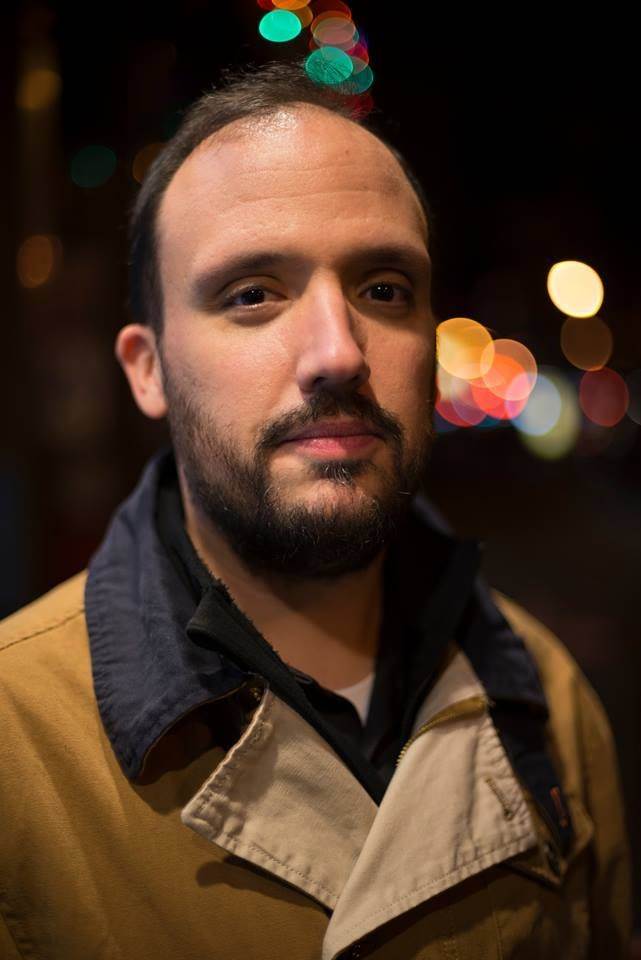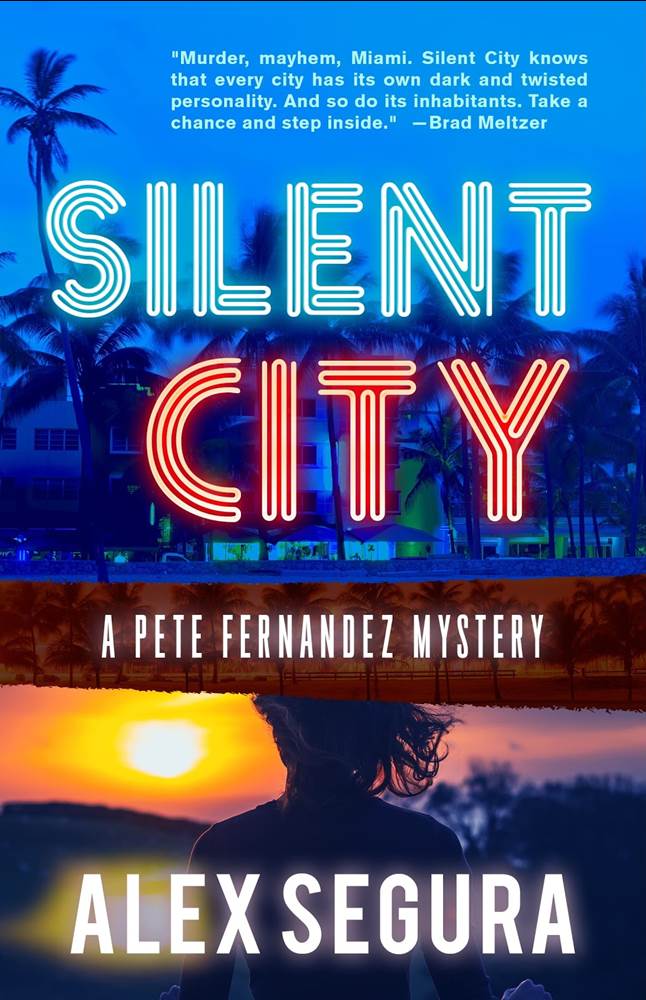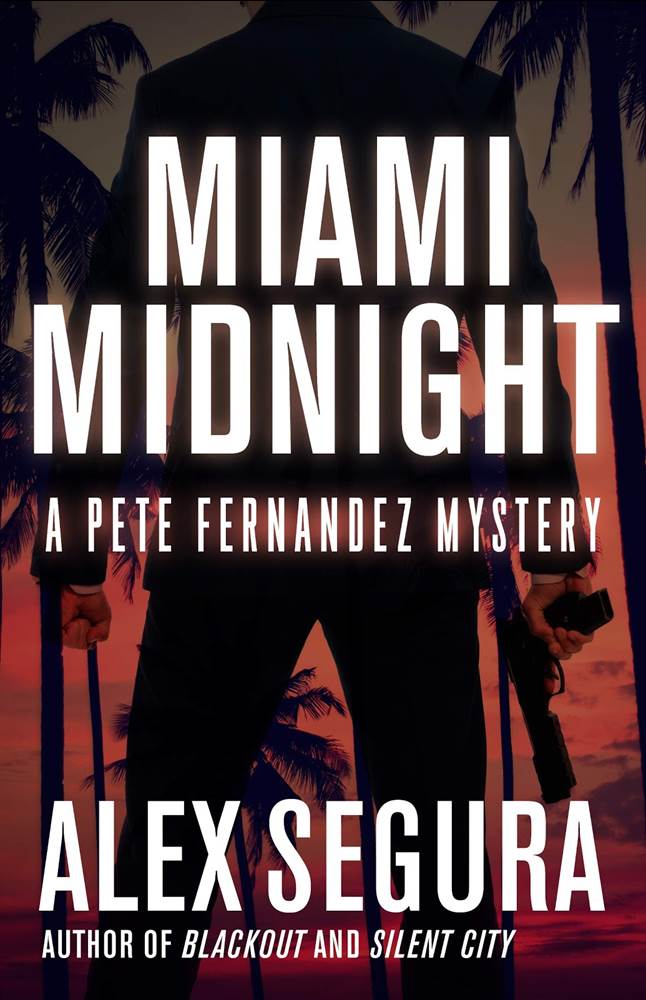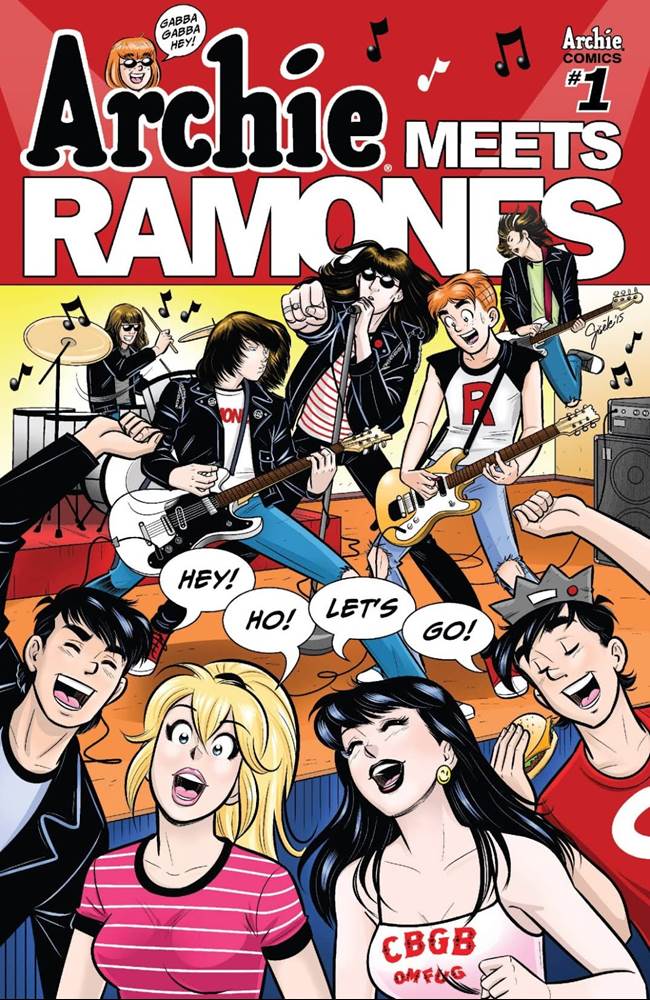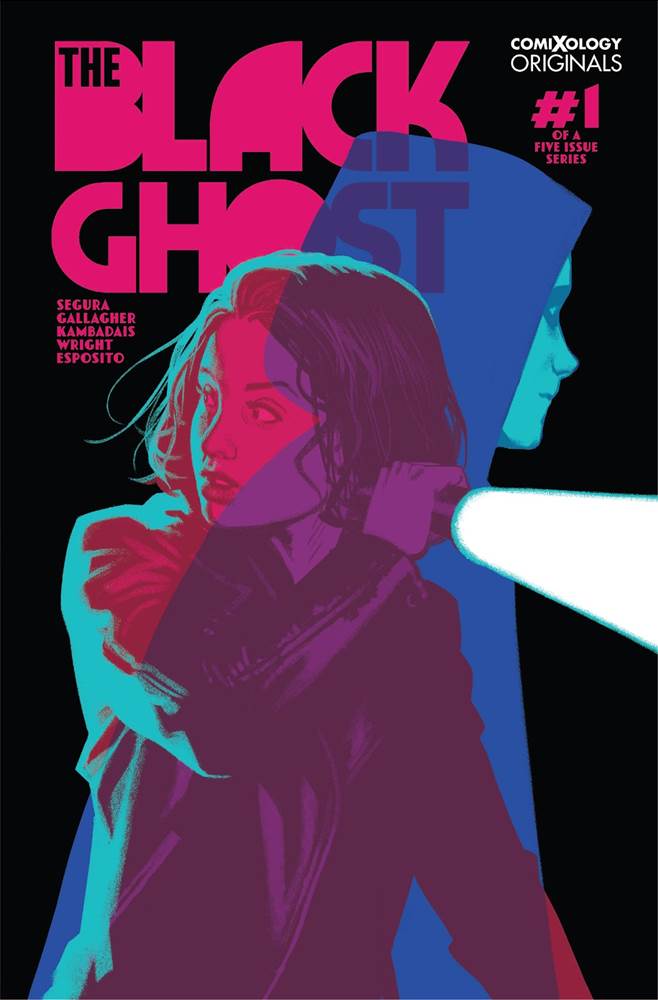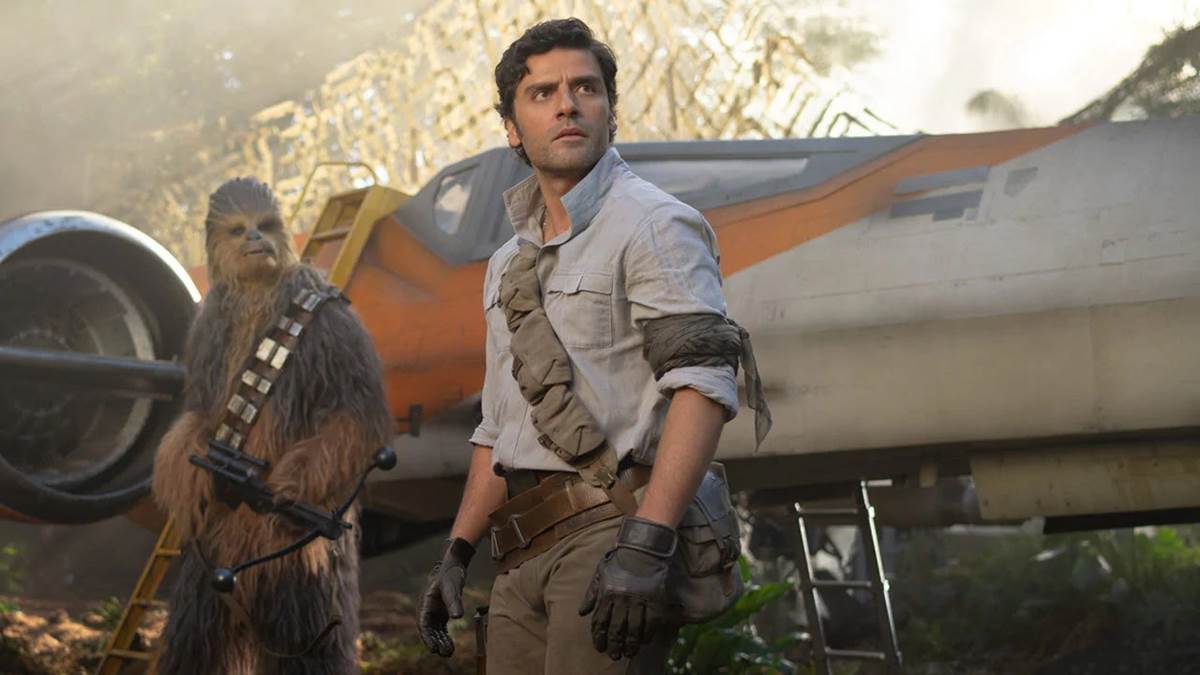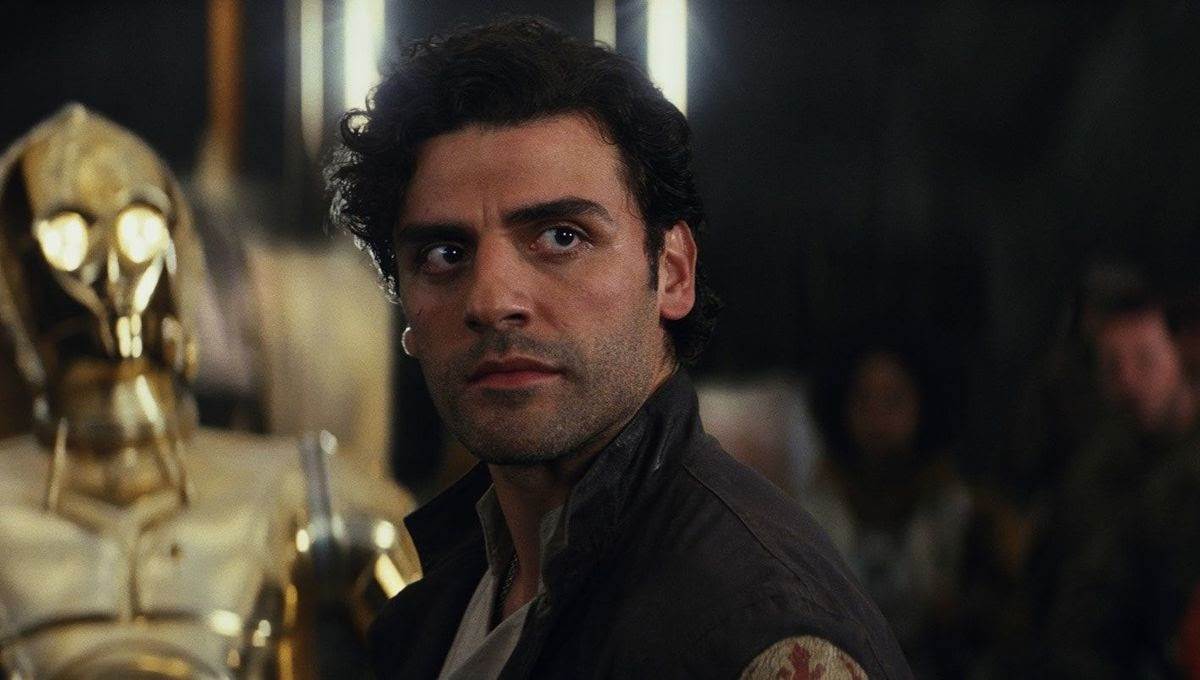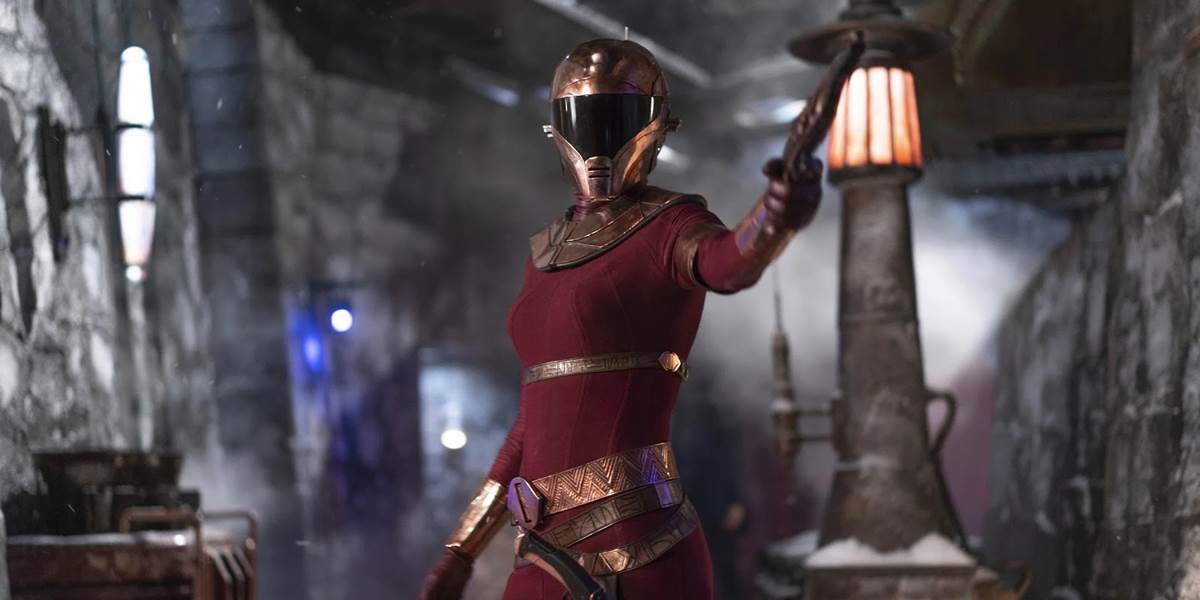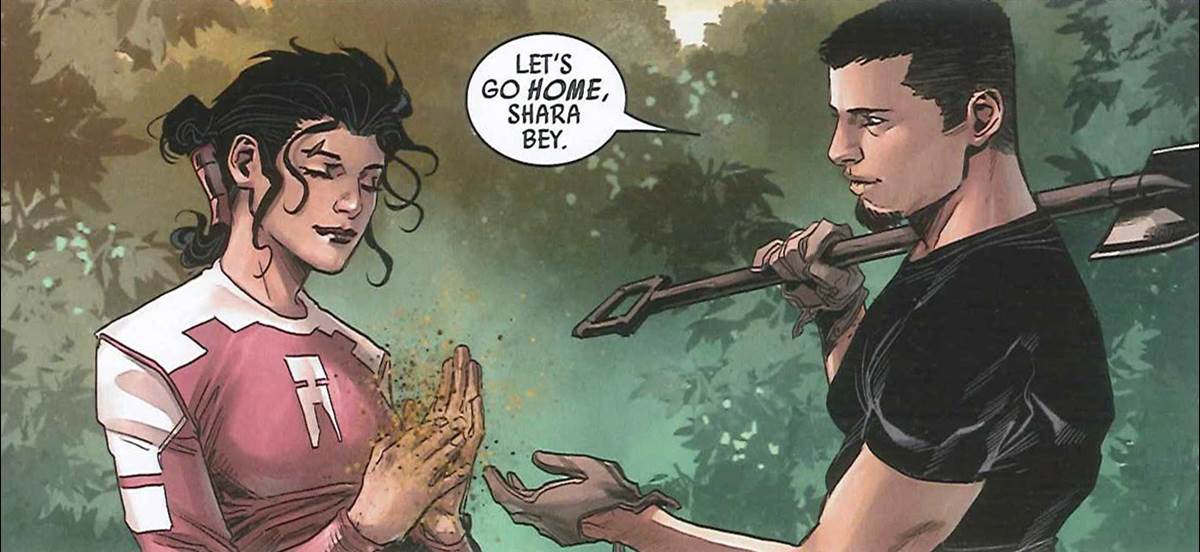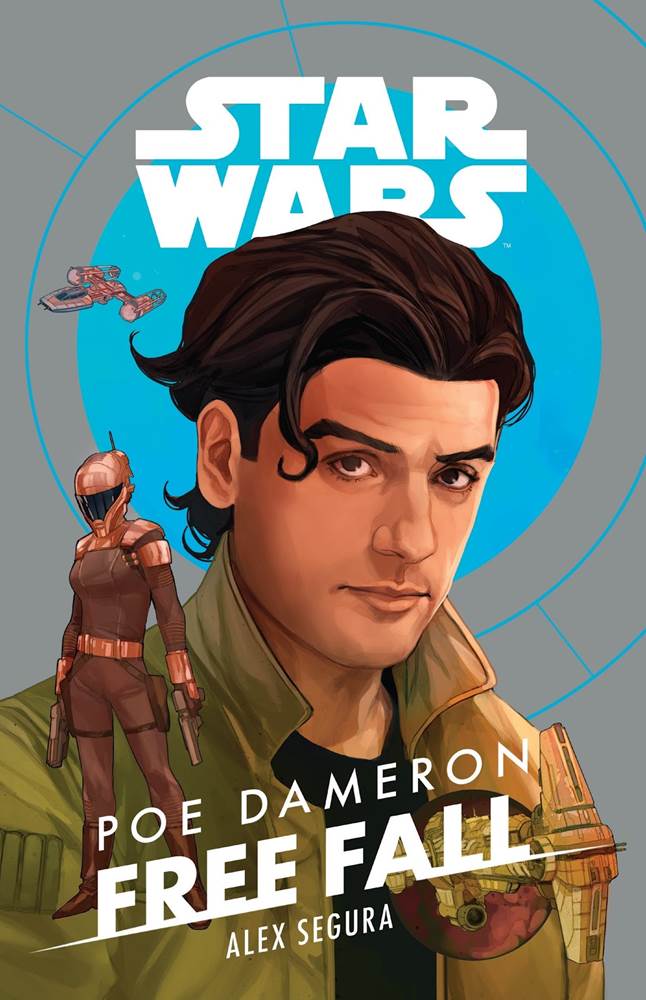Author Alex Segura has made a name for himself in both the literary and comic book publishing worlds thanks to his Pete Fernandez mystery series, The Black Ghost, and various contributions to Archie Comics, where he serves as Co-President. He also co-hosts the Lethal Lit crime/YA podcast and his most recent novel is entitled Star Wars: Poe Dameron – Free Fall from Lucasfilm Publishing.
I had the pleasure of speaking with Alex Segura over Zoom about Star Wars: Poe Dameron – Free Fall, his writing career in general, and his history as a Star Wars fan. Enjoy!
Mike Celestino, Laughing Place: Starting at the beginning, what was your relationship with Star Wars growing up?
Alex Segura: It’s one of those things that’s just around– it’s always around. It always felt like part of my childhood. I’m an 80s kid, so my earliest memories were of [The Empire Strikes Back] and probably watching it a little bit earlier than I should have, just being completely terrified by the visual of Darth Vader. Then Return of the Jedi and really loving the Ewoks… the movies were always around. I had the action figures and I was a fan [of] those very basic character stories about good vs. evil and legacies. Visually, the movies were so appealing. And I think a lot of people forget there was a big gap of content, in terms of the films, before the prequels came out, so a lot of that time was spent watching and rewatching the original movies and exploring the Expanding Universe and reading the novels and the comics. So that was my childhood and early teens in terms of being a Star Wars fan.
And then I have a lot of strong memories about the prequels. I remember going with my friends in college when The Phantom Menace first came out in Miami, and just being so excited for new movies and new content, and enjoying those. It’s almost like each trilogy defines a different era for me. The Force Awakens came out and I’m obviously older, time passes, and I’m a father now, too. So you get to see the characters and the mythos from different perspectives. And now definitely being a small part of the mythos is very cool, too.
LP: Let’s talk about your writing career. How did you get involved with that line of work?
Segura: I’ve always wanted to be a storyteller, to write stories. I think the quest of the writer is figuring out what stories you want to tell and how to do that. I grew up on novels and comics and science fiction, mystery, and just a bunch of stuff like that. Even as an early reader with comics and books, I always started jotting down my own ideas, like ‘What would happen if Spider-Man did this?’ or ‘What if I wrote this version of this story?’ And then you start creating your own characters, but it wasn’t until college that I started to really think of it as a serious profession or path. I got into journalism, and journalism really taught me how to be a professional writer. You meet deadlines, [start] managing your word count, being mindful of word choice, and [learn how to craft] a story that’s clear and evocative, whether it’s a news story or a feature story where you’re adding a little more color and context.
That’s the path I thought I would be on. I thought I would be a reporter or an editor, and I was for a long time, but I was still a fan. I was still a comic fan, a pop culture fan, and then I got to blend those two things. I was writing for websites like Newsarama and I worked at Wizard magazine, which was basically Entertainment Weekly for comics. I moved up to New York and I worked there. But I always wanted to tell my own stories; I think that was the long-term goal. And I started working at DC Comics in the publicity department. That was really educational, in that I got to interact with a lot of really creative people like Geoff Johns and Scott Snyder and Brad Meltzer and Gail Simone and people like Greg Rucka. This was their professional gig– writing, and that was really inspirational and motivational.
But what’s funny is that when your hobbies become your job, you kind of get bored of your hobbies– not bored, but I started to seek out other things for passing the time, and one of those things was mystery novels and mystery writing. But because I guess I’m just wired that way, eventually your hobbies become other careers. And I wrote a bunch of mystery novels that were really strong in terms of setting and flawed protagonists and private eyes– mainly private eye novels. I thought maybe it was just ego and the hubris of youth [that made me say] ‘Oh, I’m going to do this. I’m going to set it up and create a character that’s set in Miami and I’m going to do my own P.I. series and make it this definitive Miami thing. I had just moved to New York, so maybe I was a little homesick as well. And that’s where I started.
My first novel was just trying to see if I could write a novel, and then by the end of the first novel I had an idea for another one. [It] just kind of propelled from there, and then eventually I was able to sell the book, and it became a five-novel series. Around the same time I moved to Archie Comics, where I still work, and they gave me the opportunity to write some comics, and that became a dream come true– to write these characters that I grew up reading as a kid.
LP: And the novel series is called the Pete Fernandez Mysteries?
Segura: Right, Pete Fernandez. It’s set in Miami, which is my hometown, and Pete is not a private eye when you meet him– he’s kind of hit bottom in terms of his life. He’s drinking heavily, he’s lost his job, his fiancee’s left him, so he’s spinning out, and a coworker approaches him and asks him to help find his missing daughter, and that’s what pulls him into this new path. So we follow his personal and private-eye journey through the series.
LP: Can you go into your comic book work a little bit more? You mentioned Archie Comics but you’ve also got a series called The Black Ghost?
Segura: Yeah, I’ve done a lot of stuff with Archie. To start out, I did a lot of standard Archie stories like ‘Archie Goes to Comic-Con’ or ‘Archie Goes to the Zoo and His Friends Turn Into Animals’– fun one-off things. But my first big story arc was Archie Meets KISS, where the band KISS shows up in Riverdale and they’re these supernatural demons and they have to fight off this zombie-type situation that’s attacking Riverdale. It was a lot of fun and that felt like my first major story. And then I did stuff like Archie Meets Ramones, so a lot of music-centric stuff.
One of my favorite pieces was The Archies comic book, which was set in the modern teen YA continuity, but basically follows Archie, Betty, Veronica, Jughead, and Reggie [on] their first tour as The Archies, and they run into a lot of famous bands like Blondie and The Monkees and Chvrches. But also– maybe this is not the best way to phrase this– but it’s really a comic about failure, and dealing with not being the best at what you do and the importance of friendship. That age is so hard, especially when you’re trying to do something creative with your best friends and making music. I just tried to present that as realistically as possible.
The Black Ghost— I co-created and co-wrote that with Monica Gallagher, who I co-created the podcast Lethal Lit with. The artist on that series is George Kambadais, who brings a very Batman: The Animated Series vibe to the look. It’s a love letter to a lot of the superhero vigilante stuff I loved reading as a kid and as an adult, like Sandman Mystery Theatre and Vigilante and The Question— those are the ones that come to mind first. It’s got a lot of homages to stuff like that. It’s set in the fictional city Creighton, which is our nod to things like Gotham City and Hub City and Opal City, but we wanted to treat it very realistically. This woman Lara Dominguez has a lot of issues and problems, and she’s very obsessed.
She’s basically suffering from some form of PTSD due to the loss of her brother in Miami, so she moves to Creighton to be a reporter there. And instead of doing her usual police beat stuff, which is her assignment, she’s become obsessed with this vigilante called The Black Ghost, who’s got this very The-Spirit-like look and is very classic. We wanted to explore stuff like legacy and what happens when the heroes are gone, ‘Who steps up to be a hero?’, and the hero’s journey of this troubled person and how she can overcome her problems to become the hero this city needs. It deals with police corruption and organized crime, but we also tried to do a much more realistic take on the genre through our eyes. I think George’s art really gives it this dynamic animated quality that we weren’t expecting. At first we [thought] we’d need a very gritty, realistic artist, but the contrast adds to the story in an unexpected way.
LP: How did Star Wars: Poe Dameron – Free Fall come about for you? Did Lucasfilm Publishing reach out to you?
Segura: Yeah, they reached out to me and they said, ‘Would you ever consider doing some Star Wars?’ And I of course said ‘yes,’ being a fan, and it was a huge honor that they reached out. I don’t want to speak for them, but I think maybe part of the reason was that I have this crime/mystery background, but I also have written comics, so I have some experience handling IP that’s not mine and knowing what it means to play in a sandbox. You’re given this big sandbox, but you don’t want to break the toys. You want to add to the mythos and add to the tapestry of story, but you don’t want to disrupt what’s come before, and also you don’t want to mess things up for the next person that’s going to get to play in the sandbox. And I think Free Fall is very much a crime story. It’s set in parts of the Star Wars universe that we don’t see or spend that much time in.
There are some books that explore the criminal underworld of Star Wars, and so it was fun to revisit and try to add to that, but it also falls into a time period that we don’t see a lot of stuff in either– that time between Return of the Jedi and [The] Force Awakens. What was it like when the Republic ‘won,’ and how did they rule, and what was the criminal underworld like then, and what was it like for Poe to go from being a teenager to the man we meet at the beginning of Force Awakens? What’s that journey like? And I think when you meet Poe in the book, you know that it’s him. You see all the primal elements of Poe Dameron are there, but it’s more about, ‘How does he go through these defining moments to become the Poe Dameron we know?’
LP: I definitely agree that it’s pretty cool to see the middle point between Return of the Jedi and The Force Awakens.
Segura: Yeah, that always interests me as a reader. I was doing an event earlier this week with Zoraida Córdova, who did [Star Wars: Galaxy’s Edge –] A Crash of Fate, and is a great romance and YA author. One of the things we talked about is that the movies are the big beats. Those are the big, epic moments for all the characters. And so your favorite character will get a moment or two, but the Expanded Universe gives you an opportunity to explore not only the characters, but also the time periods between these big beats, and I think that’s what we did here.
LP: What do you find appealing about Poe as a character?
Segura: I love conflicted characters. I love characters that are not easily defined. I think he’s stubborn and he’s emotional and he’s intense, but he’s also very loyal and strategic and smart. He’s a great pilot, obviously, but he also is very drawn to having a team around him– he’s loyal to his teammates. You see it in the book, too. It’s no spoiler to say he throws in with the Spice Runners almost by mistake. He wants to get off Yavin IV and he wants to explore the galaxy and he wants to be an adventurer like his mom and like his dad, but his dad is very protective of him and doesn’t want to lose him the way he lost Shara Bey. But even after [Poe] realizes, ‘I’ve made a mistake. I’m a hero. I know this is not what I want to do. I don’t want to be party to this criminal organization,’ he’s already become loyal to his friends. He’s become friends with Zorii Wynn and he wants to see that out and protect his friends. He’s gotten so embedded that it’s hard for him to be disloyal, even though it’s to this criminal organization.
LP: I’m guessing you used the revelation that Poe was a spice runner in The Rise of Skywalker as a jumping-off point, but what was your process in going from there and building out the rest of the story?
Segura: Yeah, the big springboard is you’re going to watch Rise of Skywalker and say, ‘Whoah, he was a spice runner?’ [and] ‘Oh, who’s Zorii Bliss?’ What are these big questions that have been raised by this movie? The cool thing is when I went to see the movie I was like, ‘This is kind of awesome,’ because this book answers those questions. It gives you the context about his relationship with Zorii, it explains why he got pulled into being a spice runner and what happened during that period. So obviously the big springboard was, ‘Let’s answer those questions for the fans’ and kind of paint that picture, but you also want the book to stand on its own. You don’t want it to feel perfunctory, like you’re just checking off boxes and filling out continuity. You want it to be an adventure on its own, and it is a coming-of-age story.
It really tells you how Poe went from being this emotional, impetuous teenager to being the slightly-less-emotional but still-somewhat-impetuous adult that we see in Force Awakens. What is [his] journey, and what fires did he have to walk through, and also what can we add? Because a big part of the research was, ‘Let me revisit all this stuff– these comics and books and movies that deal with Poe– and that tells you what’s there, but it also gives you tentpoles to connect. ‘How can I be additive to this and what elements can I add to the story? What characters can I introduce?’ It’s a pretty integral moment in his life. It’s his origin story. It’s basically, ‘How did he go from being this kid that likes the idea of being a pilot, to actually being a pilot, and being a hero, and being this adventurer?’ So it’s his coming-of-age story, and that felt really important to me.
‘What kind of mythic characters can I add to this that feel familiar and feel Star Wars but are also new?’ That was a huge challenge, but it was also a chance to explore the Star Wars universe at a time that isn’t really super-defined. What’s the criminal landscape? What’s the governmental landscape? Some of the characters mention it in the book, especially the criminals. To them it’s like, ‘I don’t care who’s in charge. I’m going to commit crimes because that’s my industry. This is how we make a living, so it doesn’t matter if it’s the Empire and it doesn’t matter if it’s the Republic. We’re going to do what we’re going to do.’ That was interesting to see, and also to show that maybe things are a little shaky in the early days of the [New] Republic.
It’s not from one day to the next when somebody takes over that everything [changes] in terms of reach and power and governmental oversight. That sounds very mundane, but it’s also some of the interesting elements that we wanted to explore while telling this high-octane adventure, and also to give the characters a lot of moments. Obviously [this novel focuses on] Poe, but it’s [also] very much a Zorii origin story. We get to see who she is and what her background is and what the pressure is on her in the Spice Runner organization. Without spoiling anything, you get to realize and understand why she’s so upset at Poe when she sees him in the film.
LP: Right, we get to spend quite a bit of time with Zorii- much more than we do in the movie. How did you approach fleshing that character out beyond what we already knew about her?
Segura: It was similar to Poe in terms of, you see what’s established. It’s just that the sheer number of facts are much fewer. Poe has so much material on him and so much history in such a short time, even though we’ve only known him for a couple years. But [with] Zorii, you see her for ten minutes, fifteen minutes total in the film? Those are all very important moments and you get a real sense of her character, but then my question was, ‘How did she become this person?’ and ‘How did she sign up with the Spice Runners?’ and ‘How did she become the leader of the Spice Runners?’ For me, those are really great starting points. Working backwards from that, I figured out that there’s some legacy involved. I wanted her coming-of-age to mirror Poe’s in some ways, but also to be different.
There’s obviously going to be a divergence at the end where she decides to be a spice runner and he has to go do something else, so I wanted to build towards that in a natural way. And I wanted to show a typical teen dynamic and relationship– not necessarily romantic, but something where these two characters have a strong bond, and it’s very emotional and it’s very intense because they’re being dragged through the fire together. They’re the two teenagers of the group. The Spice Runners, as you’ll see in the book, are a huge galactic criminal organization, but the team that Poe is on is very small. It’s him, it’s Zorii, and it’s a few other new characters, so they’re at the bottom of that hierarchy. They’re the new kids, the younger ones, but then we also find out that there’s much more to Zorii than we first thought. Unraveling that mystery was part of the fun.
LP: I’m always curious about the working relationship between the Star Wars authors and the Lucasfilm Story Group. How did they help you make sure Free Fall fits within the established canon?
Segura: It was great. I think whenever you come into a work-for-hire situation or a relationship where you’re dealing with characters that are not yours, it can vary, but what I found really refreshing was how welcoming to new ideas the Story Group was, and my editor Jen Heddle, and Michael Siglain at Lucasfilm Publishing. They were just like, ‘This is your story.’ I think they bring people in because they want unique voices, and they want people that are coming at things from a different perspective– not just filling in the blanks. So it was fun to come in and bring that energy in. They were really supportive and also a great backstop and a great resource. ‘Can I do this?’ or ‘I need a reference here,’ but all in all it was more about, ‘Let’s add to the story. Let’s add to this really huge universe of story, and add characters and planets.
One thing I was really mindful of is, you want the fans to get something out of it beyond just the story and the characters and the plot. You want little hat-tips to the greater universe, you want that connective feeling. I’m a comic book fan; I get that, and I love that. You read a story and you’re like, ‘Aha! This character showed up over here and now this writer is bringing them in here.’ If you’re not a hardcore fan, you don’t get that, [but] you still enjoy the story. If you read Free Fall and you’re not a huge Star Wars person, I hope that it comes across as a fun, action-packed story with great character beats, but if you are a Star Wars fan, there are plenty of Easter Eggs in there. A lot of that came from my own research, but also [from] talking to the Story Group and knowing that we want this to feel like a really immersive experience.
LP: In the case of Poe Dameron’s mother Shara Bey, we don’t know exactly how she died. Is that something the Story Group specific requested to be saved for another time, or what that a choice on your part?
Segura: We don’t get into it in the book, how she died. I think the most detailed thing we say is ‘she was shot out of the sky.’ I may be forgetting, [but] I don’t think we had a conversation where we [decided] ‘we’re not going to include this.’ I think by design I wanted to keep that memory a little vague, and a little more emotional than factual. I didn’t want to relive that for Poe in detail. I wanted it to be something he’s just carried with him. He knows she’s gone and he knows that she was taken away in this fashion, but I didn’t feel the need to hammer it into readers’ heads. It doesn’t add to the experience to get into the details of how she died; you just know she’s gone and there’s this emptiness for Poe, and hopefully that’s part of the reason you keep it vague. It’s kind of [an] empty feeling as you read the story.
LP: I have one other really specific question for you. At the end of the Star Wars: Shattered Empire comic book miniseries, part of the tree from the Jedi Temple gets planted at the Dameron farm on Yavin IV. I was expecting that tree to make an appearance in this story, but it didn’t show up. Was that a deliberate omission?
Segura: It wasn’t a deliberate omission. I did read the story, [but] I wanted to focus more on the dynamic between Kes [Dameron] and Poe and Shara Bey’s memory. There was no way to weave it in without diverting the story away from the main narrative.
LP: That makes sense. I would compare Poe Dameron – Free Fall favorably to something like Solo: A Star Wars Story. But beyond being an origin story, what do you hope fans get out of reading this novel?
Segura: I hope, first and foremost, that they find it to be entertaining, and they find that it adds to Poe’s overall story– it answers questions but it also gives you a better sense of who he is as a person. And I hope when you go back and rewatch the movies, you see him in a deeper, more contextualized light– not necessarily a different one, because Poe is Poe and the Poe we see in the movies is the Poe [we see in] Free Fall will become. I hope it adds more layers to that experience but it also stands on its own as a really fun, engaging, character-driven story with tons of action– a story that evokes Star Wars in a pure way. I was really mindful of what works in a Star Wars story and tried to integrate that. And kind of selfishly, I hope that the new characters that are introduced will live on in some different way or that the readers enjoy them as additions to the mythos.
https://twitter.com/alex_segura/status/1291906718692265986
LP: Do you have any other projects in the works that readers can look forward to?
Segura: Yeah, we just announced that my next crime novel will be coming out from Flatiron Books and it’ll be called Secret Identity. It involves a woman moving from Miami to New York to work in the comic book industry in the 70s– an interesting period for comics and the world. So she moves up to New York, she starts working at this comic book publisher and gets involved in a murder mystery. It’s the story of how she has to solve this mystery in this unique setting as an amateur; she’s not really an investigator. We’ll announce the release date soon and I’m excited about it. And I’ve got some other comic book stuff that I’m chomping at the bit to announce, but I can’t yet.
Star Wars: Poe Dameron – Free Fall is available now wherever books are sold. The full audio of this interview will be featured in this week’s episode of Laughing Place’s Star Wars podcast “Who’s the Bossk?”


